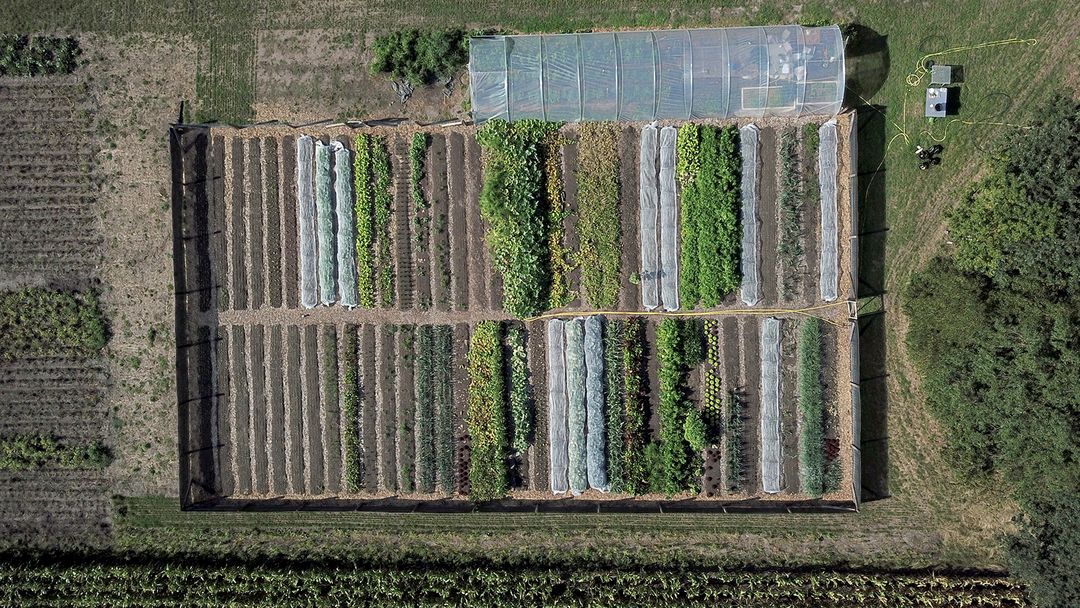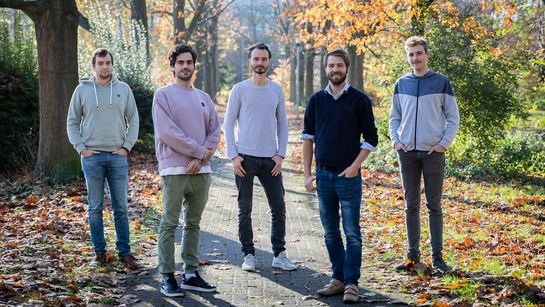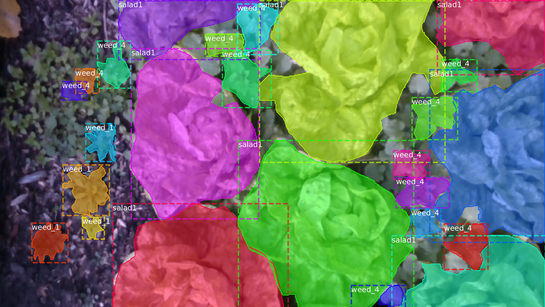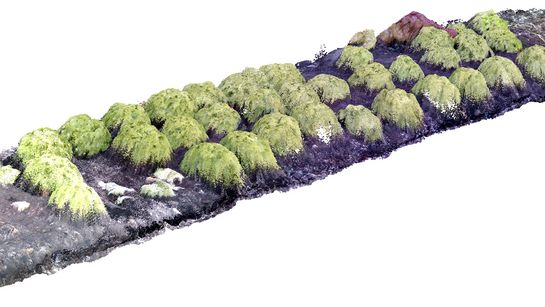In times of growing demand for food due to an increasing world population, the worsening climate crisis, and competitive pressure in the agricultural industry, farmers are forced to rethink their work methods and find ways to thrive in this field of tension. Intelligent technologies can balance profitability and ecology. “For me, the exciting thing with AI is not to constantly optimize existing things in agriculture, but to do things that would not have been possible before,” says Pütz from the Plan-Based Robot Control research area at the DFKI Niedersachsen Lab.
Within the next two years, together with four DFKI colleagues, he will develop the software modules needed to enable robots to independently navigate among and detect different vegetable plants and weeds. Robots equipped with cameras create a 3D plant map, with which real-time data of the environment in the bed can be compared. From this information, recommendations for the farmer can be derived. Foundations of his doctoral thesis, open-source algorithms for robots on uneven terrain that are already being used in research and practice from Auckland to Oxford, will be incorporated in the product. The startup project PlantMap started October 2021 with a funding around 800,000 euros from the German Federal Ministry for Economic Affairs and Climate Action (BMWK). The project is part of an EXIST research transfer and the company will be registered this January and independent by the end of 2023.
The focus is on the so-called market gardens that are currently an emerging trend in Germany. In modern market gardens, oriented on Parisian city gardens of the 19th century, pesticides are avoided, planting is diversified, and natural soil care is taken into account. Thus, the harvest result depends on knowledge and fine work. Large machines cannot be used to increase the efficiency of this method. It takes fine equipment that is able to comprehend the small-scale environment in the garden, can move delicately within it, and assists in the care of the plants. With robotics and AI, this can be achieved.
Julian Plagemann of Grööntüügs (Low German for greens) is a market gardener and the first user that the team was able to attract as a project partner. The agricultural science graduate took over a farm of about 10 hectares from his parents: “I was looking for ways to make the farm sustainable. We don't have unlimited space to expand our production. I now sell regional and seasonal vegetables directly online. It works out economically. Through market gardening, every town and village can have its own vegetables.” Plagemann will make his gardens available to the founding team for test runs with the robots and will contribute his expertise to build an expert system. “Market gardening is about reducing the likelihood of something going wrong. As your own experience grows, you create more favorable conditions in the garden. Working on high-tech that assists with that is an important step so we can grow vegetables intelligently across the industry.”
Pütz thinks his technology might be useful in viticulture or agroforests as well. That will become more clear in the coming period, he says. Startups from countries such as the U.S. or France would currently focus primarily on conventional agriculture. Prof. Joachim Hertzberg, head of the DFKI Niedersachsen Lab, has supported the idea from the beginning: “You can't start a company from afar. AI solutions must emerge from the application area for which they are intended. In the AgriTech region around Osnabrück, everyone is within reach — agricultural technology manufacturers, agricultural scientists at universities, market gardeners, and farmers. I'm excited to see how team PlantMap takes advantage of that and builds the right applications on a strong technological foundation.”




